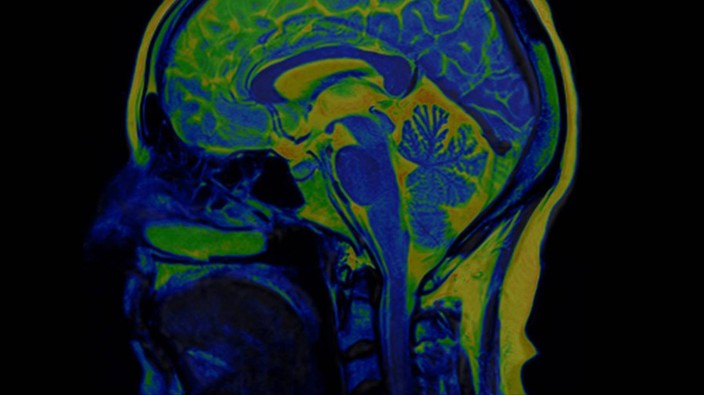brain tumour vaccine shows promise for glioma
glioma is a notoriously hard to treat type of brain cancer.

a new vaccine may help combat aggressive brain tumors.
getty
researchers at the german cancer research center may have developed a vaccine to fight the progression of a notoriously aggressive form of brain tumour.
the brain cancer targeted by this vaccine, called glioma, makes up about 33 per cent of diagnosed brain tumours, according to johns hopkins medicine. an estimated 70 per cent of glioma carry the same genetic mutation, affecting the idh1 enzyme, which contributes to the development of this cancer.
the scientists developed a vaccine that would train the immune system to target this mutated protein, thus slowing the progression of the tumour. the idh1 mutation also makes a good target for vaccination as it doesn’t occur in tissue outside of gliomas.
“our idea was to support patients’ immune system and to use a vaccine as a targeted way of alerting it to the tumour…” study director dr. michael platten, medical director of the department of neurology of university medicine mannheim, explained in a news release. “that means that a vaccine against the mutated protein allows us to tackle the problem at the root.”
the stage 1 clinical trial of this vaccine found that it was successful in creating an immune response against the cancer. this immune response also seemed to slow the growth of the tumour; however, more research is needed to say it is more effective than traditional forms of treatment.
advertisement
“up to now, we have usually had only limited success in halting tumour progression in these patients,” said dr. wolfgang wick, medical director of the neurological clinic of heidelberg university hospital. “we believe that the idh1 vaccine offers the potential for developing a treatment that can suppress these tumors more effectively and on a long-term basis.”
vaccine tested against aggressive form of brain cancer
gliomas are a common type of brain cancer, making up about 33 per cent of diagnosed brain tumours, according to johns hopkins medicine. glioma affects cells that support the neurons in the brain, called glial cells. there are several types of glial cells, each of which can develop a form of glioma, however the most numerous type of glial cell is a multi-functional support unit called an astrocyte. glioma, or brain cancer, that affects the astrocytes is called astrocytoma.
gliomas are a common type of brain cancer, making up about 33 per cent of diagnosed brain tumours, according to johns hopkins medicine. glioma affects cells that support the neurons in the brain, called glial cells. there are several types of glial cells, each of which can develop a form of glioma, however the most numerous type of glial cell is a multi-functional support unit called an astrocyte. glioma, or brain cancer, that affects the astrocytes is called astrocytoma.
there are four ‘grades’ of astrocytoma, with grades three (also called anaplastic astrocytoma) and grade four (also called glioblastoma) considered to be more aggressive and pose a greater risk of spreading to other regions of the brain and spinal cord, according to cancer research uk.
about 80 per cent of astrocytomas diagnosed are grade 4 glioblastomas. treatment for glioblastoma is generally considered palliative, which means the aim is to relieve symptoms and give patients a better quality of life but is not expected to cure the cancer. depending on the size and location of the tumour, patients will typically undergo surgery to remove as much of the tumour as possible, then receive chemo or radiation treatment to treat what remains, according to the u.s. national institute of health.
advertisement
currently, only about 22 percent of patients aged 22-44 years old will survive more than five years after they are diagnosed with grade 4 glioblastoma. this rate drops to six per cent for patients aged 55 and older. overall, the median survival rate for glioblastoma is 12-14 months.
the survival rate for grade 3 anaplastic astrocytoma is slightly better, with 48 per cent of patients aged 20-44 surviving five years after diagnosis. the median survival rate is 2-3 years.
in the research study, 21 of the patients had been diagnosed with grade 3 anaplastic astrocytoma and 11 with grade 4. promisingly, 84 per cent of the vaccine recipients had survived to the three-year anniversary of their diagnosis, and the tumours remained the same size for 63 per cent of the patients at this time as well.
this was a phase i trial, meaning it was designed to establish that this method safe to use in humans and that there is some potential for it to be an effective treatment. a larger phase ii trial should also include a placebo or a control group, as well as a larger group of study participants, to determine if this method is indeed an improvement on current treatments.
advertisement
don’t miss the latest in health. subscribe to healthing’s daily newsletter here.
 3 minute read
3 minute read





